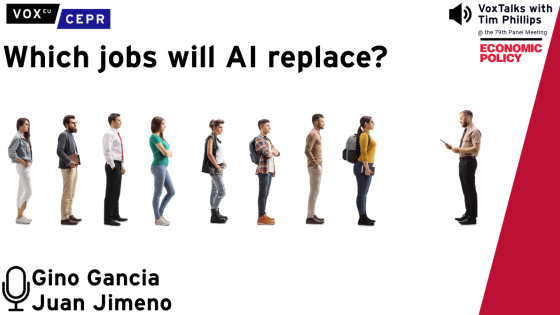Institutional investors have become the most important investors in the US economy, controlling more than 70% of the publicly traded equity, much of the debt, and virtually all of the private equity. Their investment decisions have far-reaching consequences for the spending and funding decisions of universities, pension funds, states, and corporations. Also, the ability of foundations to support charitable endeavours depends crucially on the returns they receive on their investments. For these reasons, the highest-paid individuals in these organisations are often their investment officers. This is controversial. If investment performance is random it is hard to justify this high level of pay, but if high-quality investment officers lead to better returns their high salaries make sense.
The private equity industry has grown dramatically since the 1990s, bringing total assets under management to more than $3.4 trillion in June 2013 (Preqin). There is a large variation in returns across private equity funds, with the difference between top quartile and bottom quartile returns averaging approximately 19 percentage points. Most of the money in the private equity industry comes from institutional investors, acting as limited partners (LPs) in a private equity firm (the general partners, GPs, manage investments on behalf of the LPs). In turn, private equity investments represent a substantial portion of the portfolios of institutional investors.
Potential investors need to use judgement to assess a partnership’s strategy, talents, experience, and even how the private equity partners interact, especially for new partnerships. Measuring whether that investor's decisions are down to luck or skill has been a classic research problem, going back to Jensen (1968). We do not know whether different institutional investors on average receive different returns. Nor do we know whether differences in returns across investors reflect the investors’ skill, access to better private equity groups, or just luck.
Our recent work estimates the extent to which skill has affected the returns from investments in private equity (Cavagnaro et al. 2016). We looked at 12,043 investments in venture and buyout funds made by 630 LPs. Each LP in the sample made at least four private equity investments in either venture capital or buyout funds between 1991 and 2006. We then tested the hypothesis that skill in fund selection affects investor returns, and the importance of skill in determining returns. Our results imply that skill matters: an increase of one standard deviation in skill leads to about a three percentage point increase in the internal rate of return (IRR).
To do this, we performed a model-free test of whether there was differential skill in selecting investments in private equity firms. We used a bootstrap approach to simulate the distribution of LPs’ performance under the assumption that all LPs were identically skilled, in which case all differences in performance would reflect only luck.
We measured performance as the proportion of an LP’s investments that were in the top half of the return distribution for funds of the same type, in the same year. We also calculated average returns across all of the LP’s private equity investments. A comparison with the bootstrapped distributions suggests that more LPs do consistently well (above median) or consistently poorly (below median) when they choose private equity funds than could have been explained by luck alone.
Also, that there is more variation in LP performance than what we would expect in the absence of differential skill. This is still true when we zoom in on time period, fund, and investor type. It seems there are more LPs who are consistently able to earn abnormally high returns than we would expect by chance. Some LPs appear to be better than other LPs at selecting the general partners who earn the highest returns.
We extended the method of Korteweg and Sorensen (2015) to quantify the impact an LP's skill. This method assumes that the net-of-fee return on a private equity fund consists of three main components: a firm-specific persistent effect, a firm-time random effect that applies to each year of the fund’s life, and a fund-specific random effect. The firm-specific component measures the skill of each GP managing the private equity funds in our sample without random effects. These adjusted returns reflect only the skill of the GP. Then, using Bayesian Markov Chain Monte Carlo techniques, we estimated the extent to which LPs can pick high-ability GPs.
The results imply that one standard deviation increase in LP skill leads to an expected three-percentage-point increase in annual IRR from private equity investments. The effect is even larger for venture capital investments, in which a one standard deviation increase in skill leads to a five-percentage-point increase in returns.
In summary, skill is important when institutional investors make private equity investments. Some perform consistently well relative to their peers, while others perform consistently poorly. This outperformance exists in both buyout and venture investments, and the differences are economically meaningful.
Recently, a partner at a large consulting firm told us that he was puzzled that some pension fund managers are paid civil service salaries, because they make investment decisions involving hundreds of millions of dollars in fees using subtle judgements about the ability and incentives of the partnerships in which they invest. This study suggests institutional investors should spend more time and resources on their choices of private equity investments, and that they could improve returns by paying their investment officers more, by letting them share the upside, and by monitoring them better.
References
Cavagnaro, D. R., B. A. Sensoy, Y. Wang and M. S. Weisbach (2016), “Measuring Institutional Investors’ Skill from their Investments in Private Equity,” Working Paper.
Jensen, M. C. (1968), “The Performance of Mutual Funds in the Period 1945-1964,” The Journal of Finance, 23, 389-416.
Korteweg, A. and M. Sorensen (2015), “Skill and Luck in Private Equity Performance,” Journal of Financial Economics, forthcoming.








